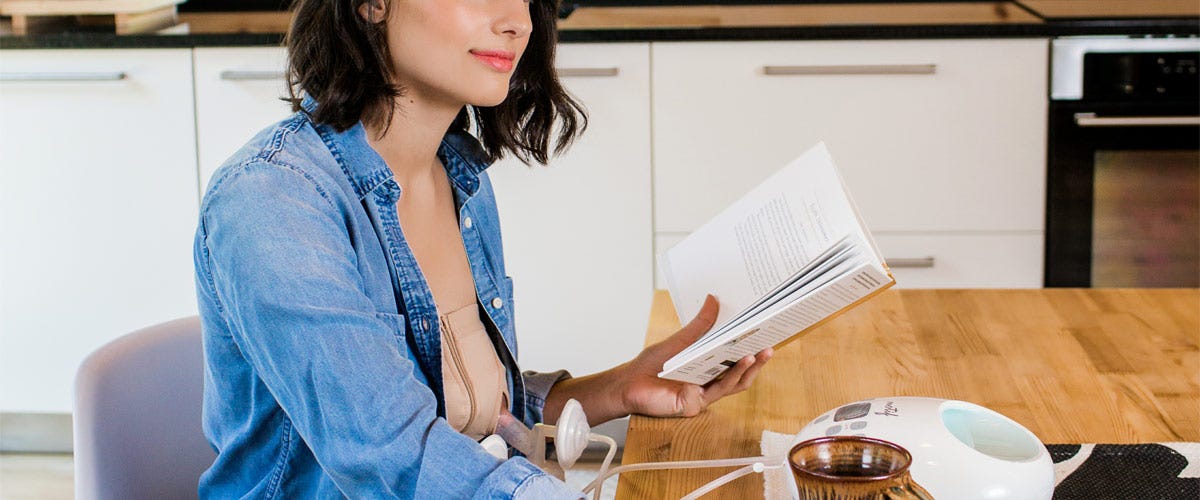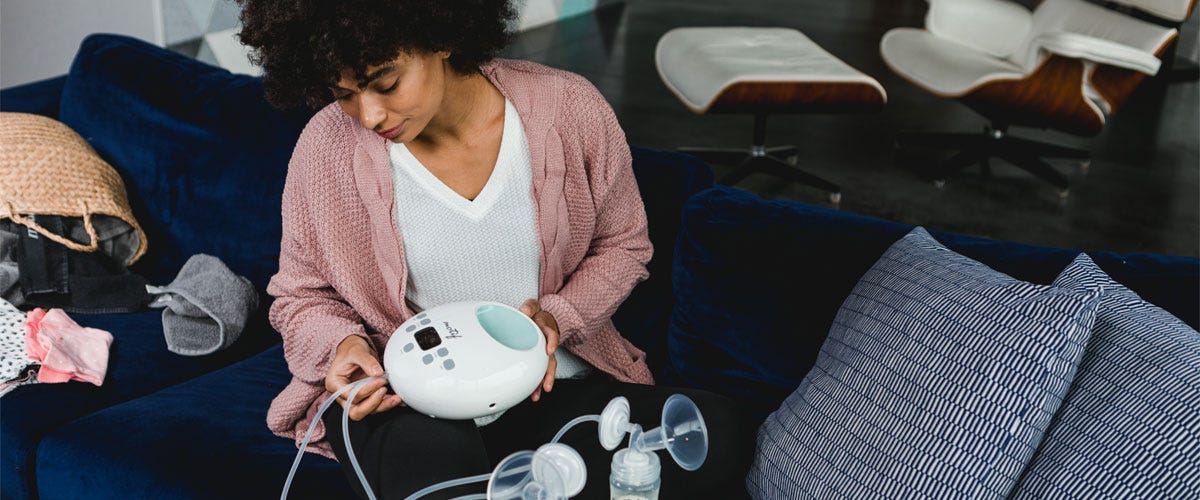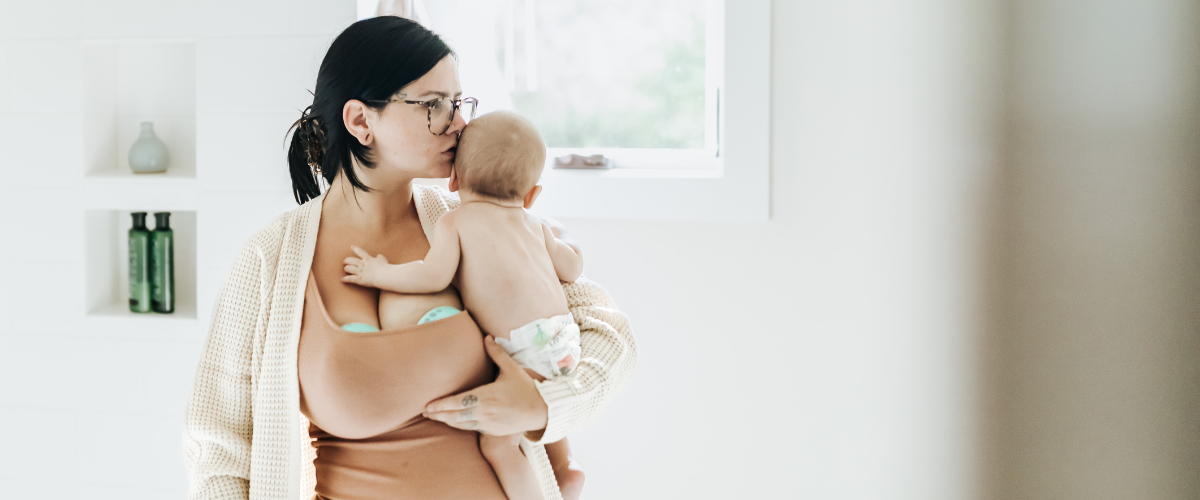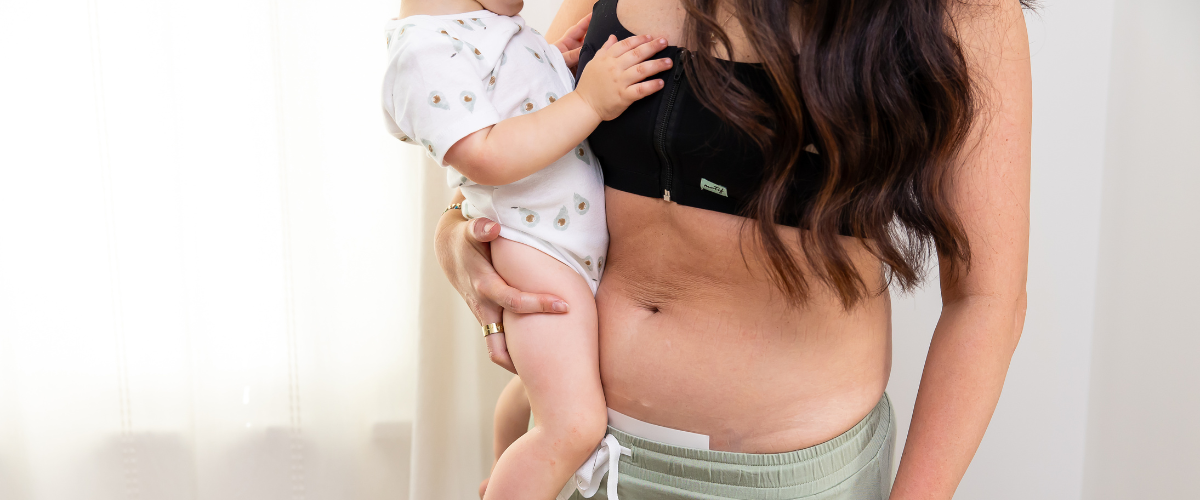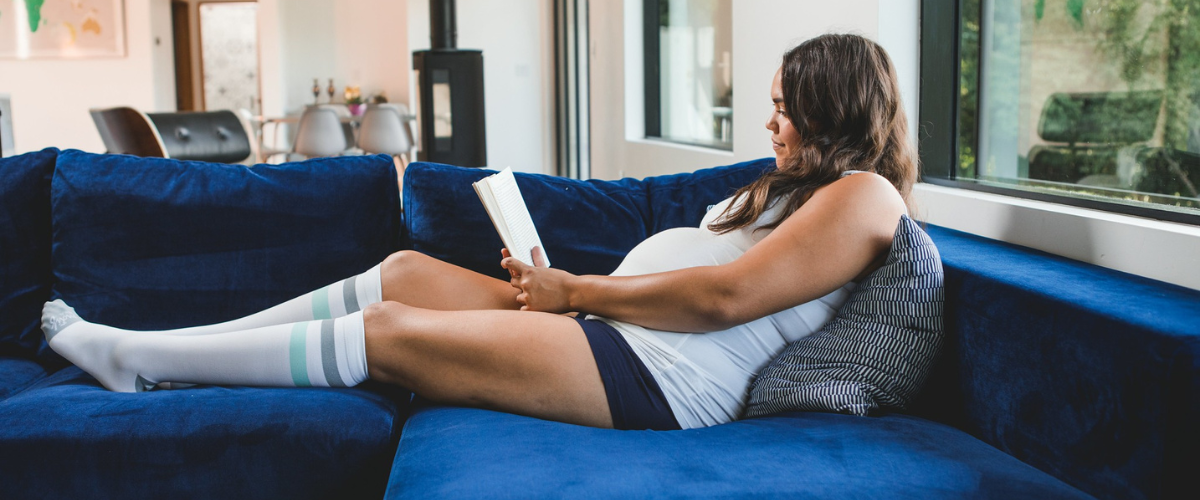Postpartum Body – What to Know & What To Do
Your body is an incredible creation! Throughout the pregnancy your body has grown and nourished a new person, created new organs and systems, and birthed a new life into the world. What comes next? What does the postpartum look like for new parents? What can you do to support your postpartum body during the Fourth Trimester?
The first weeks after your baby is born is full of changes and adjustments. Rest is one of the most important things for you to do. Whether your baby was born via c-section or vaginal delivery, your body is going to be sore and need rest and support to recover.
My advice to all new moms is to not worry about anything except resting, feeding your baby, and giving yourself proper postpartum care for at least the first two weeks.
There are a lot of body changes that happen during the first weeks:
- Your uterus contracts and goes back to its usual size.
- Lochia changes from a heavy flow, sometimes including small blood clots, to a lighter, spotting type of flow.
- Your abdominal muscles begin to come back together.
- If you had any perineal tearing or an episiotomy, those tissues begin to heal.
- Your breast milk will come in (around day 3) and you might have a low-grade fever.
- If you are breastfeeding, there is often nipple tenderness.
- You may have issues with bladder control.
- “Baby Blues” can also show up within the first few days.
Doesn't this all sound fun? There is definitely a lot going on in the postpartum, which is why it’s important to know what to expect and have a support system in place to help you navigate all of the physical, mental, and emotional changes that happen in the immediate postpartum.
If I could choose a word for you to reflect on during the postpartum, it would be “Nourish.” The goal of all that you're doing in the first weeks postpartum is to provide for the physical and emotional needs of yourself and your baby. How can you do that? Let's talk about a few ways to sustain you and baby:
Keep Baby Close
Your baby has three main needs after birth: food, warmth, security. All three of these things can be provided while you are holding your baby. Breastfeeding is the perfect combination of those three things, but the same can be accomplished by holding your baby to bottle feed. Some people might say that you'll spoil your baby by holding them too much, but there isn't any evidence to back that up.


Remember that your baby's entire world has been drastically altered by their birth. The only thing that is familiar to them is you. So hold them and snuggle them while they are adjusting to all of the new things in their world—the bonding time is good for you and good for them! This isn't just in the first few weeks, but great throughout the first year postpartum as well!


Healthy Foods
In the weeks leading up to the delivery, I encourage my clients to start doing some meal planning for the postpartum. What are you and your family going to eat? Putting together easy to make meals or freezer foods, focused on nutrition and a healthy diet, can be a real life saver in the first weeks postpartum. Make sure to focus on nutrient dense foods with lots of fiber.
Constipation is common after birth, but best avoided if possible! With that goal in mind, aim to drink at least 3 quarts of water a day and you will be nourishing your body while it is doing the work of postpartum recovery. However, remember that the goal isn't weight loss or "getting your body back," it's about having a healthy and easier postpartum journey!
Physical Comforts
Pregnancy and birth is hard work for a body and the soreness and discomforts that follow are to be expected. Warm herbal baths or perineal sitz baths are a wonderful way to soothe your body and promote healing. Following a vaginal birth, some people find that using ice packs on their perineum provide the most relief. The postpartum cramping tends to get more intense with each baby and many like to use postpartum compression garments or a heating pad on the area. Although your body is no doubt sore from the work it has done to grow and birth your baby, don't forget to start doing your kegel exercises again!
You can start doing these right away after delivery and they will help re-engage your pelvic floor muscles to fight against leakage and incontinence. It's best to wait until your 6 week checkup before you start doing any serious exercise programs, but it is important to move around and stretch every day. You may find that your shoulders and back, especially, get tight throughout the day from holding your baby. Take a few minutes every morning and evening to stretch out those muscles and prevent additional aches and pains.The postpartum time is filled with many hormonal and physical changes happening in your body. The difficulties of physical soreness and lack of sleep are usually balanced by the fun and excitement of you and your family welcoming your new baby into the world, but recently families have found that the Covid pandemic has made this postpartum time more lonely and more isolating than ever before.
Visitors are often limited in the hospital and even once people are back at home, family and friends aren't coming over as much to help with the baby or the other household jobs that still need to be done. This has left new parents alone to care for themselves and their families with little sleep, fluctuating hormones, and not enough support.


A recent survey found that 36% of women had significant levels of depression in the postpartum (postpartum depression), which 15-20% higher than numbers before Covid. In addition to that, 1 in 5 postpartum women reported higher than average levels of anxiety, so it's easy to see that the mental health of new parents is suffering in our current culture.
How can you help? If you're reading this and you know someone who recently had a baby, give them a call (a video call is great because you can see each other's faces!), take them a meal, or drop by for a socially distanced visit, if you can. No matter how you choose to do it, let them know you're thinking about them. Being a new parent can be so isolating even in the best of times, and in these hard times we need our community more than ever.



